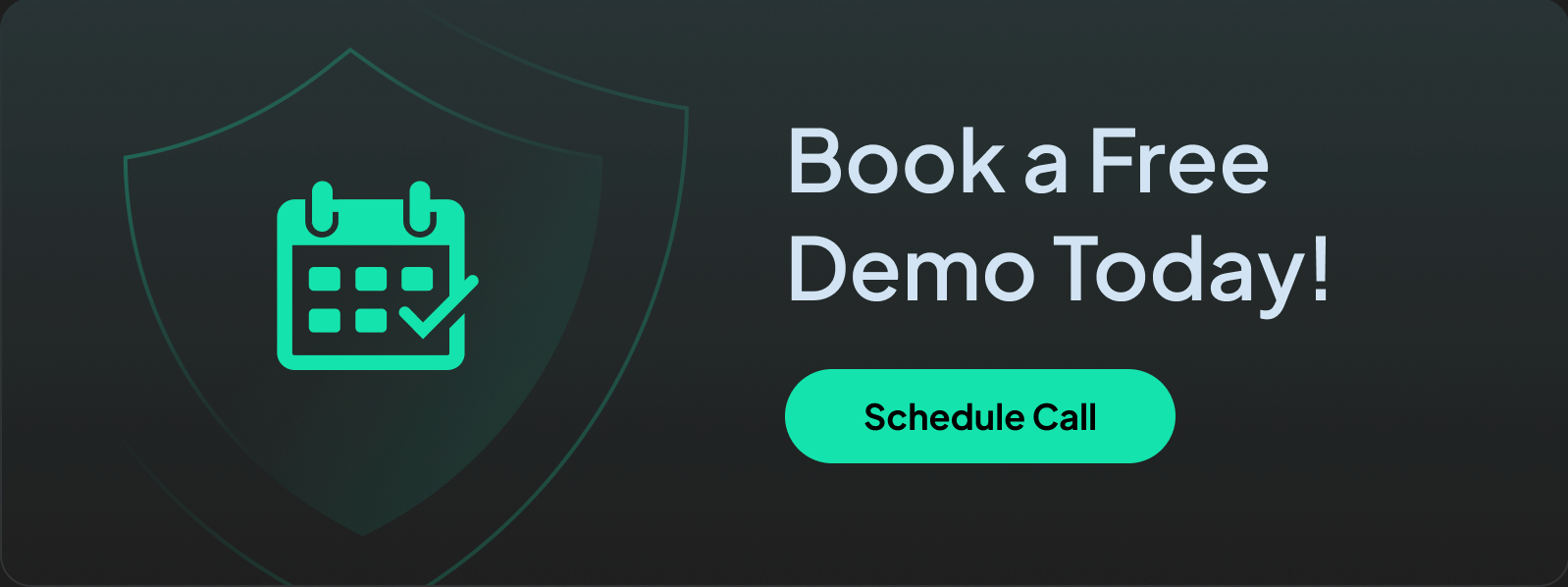DNSFilter Pricing: Is It Worth the Money?
Full breakdown of DNSFilter pricing, including plans, minimums, add-ons, and hidden costs to see if it fits your budget and needs.
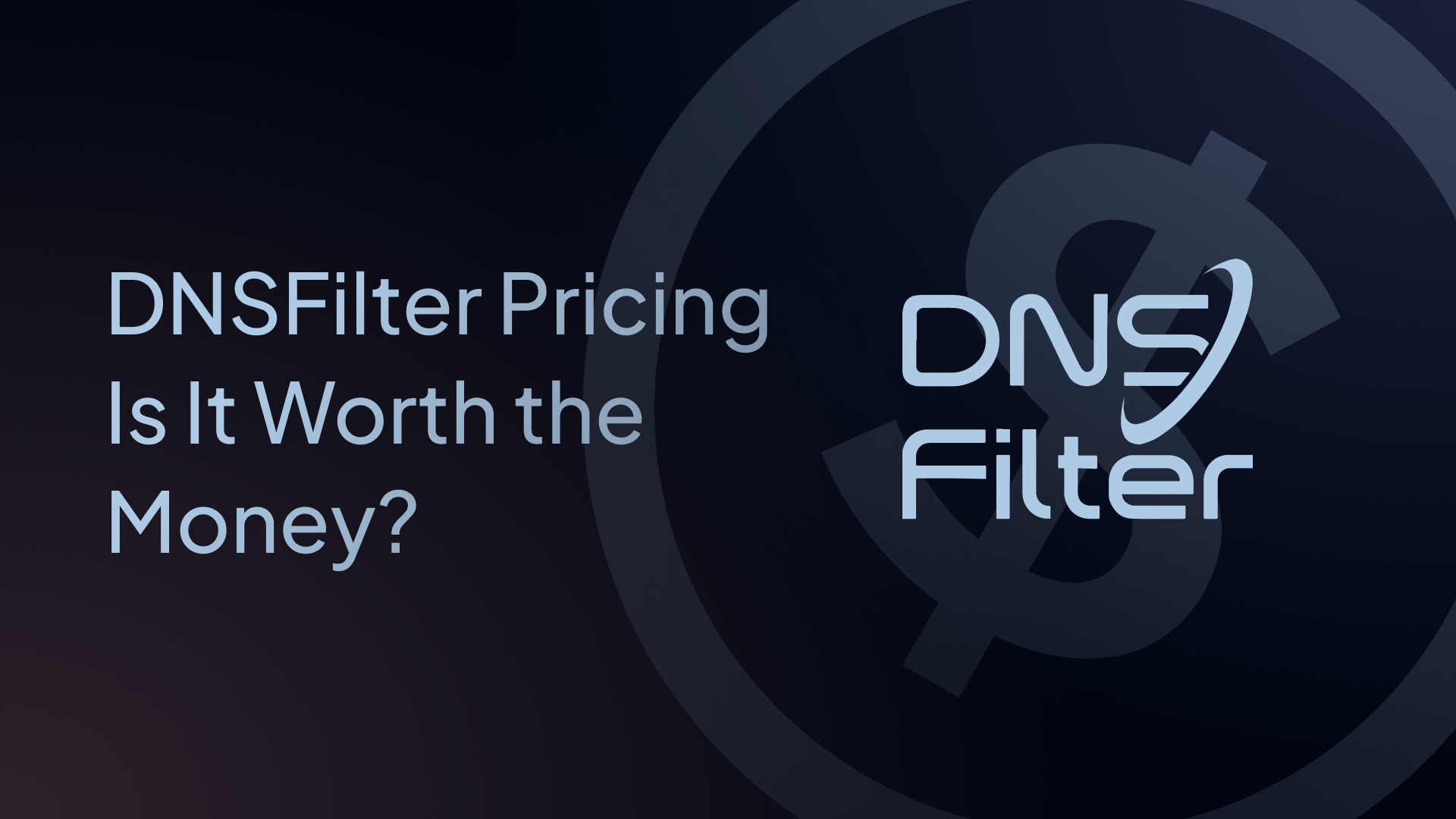
If you’re looking for a DNS filtering solution, you’ve probably heard good things about DNSFilter: solid threat protection, straightforward deployment, and clear per-user pricing.
But the real question isn’t “Is DNSFilter good?”, it’s “What does it actually cost once you add the features you need, and is it worth the investment?”
In this DNSFilter pricing guide, we’ll break down the costs, what features you get at each tier, support, analytics, and quirks (like roaming agent issues and data sharing) to help you determine whether it’s the right fit for your security stack.
We’ll also help you understand if there’s a better alternative that gives you more bang for your buck.
TL;DR
| Product / Plan | Cost USD (per user per month) |
|---|---|
| DNSFilter Basic | $1.15 |
| DNSFilter Pro | $2.30 |
| DNSFilter Enterprise | $3 |
| Control D | $0.5–$2 |
DNSFilter Pricing Breakdown: What Each Plan Costs
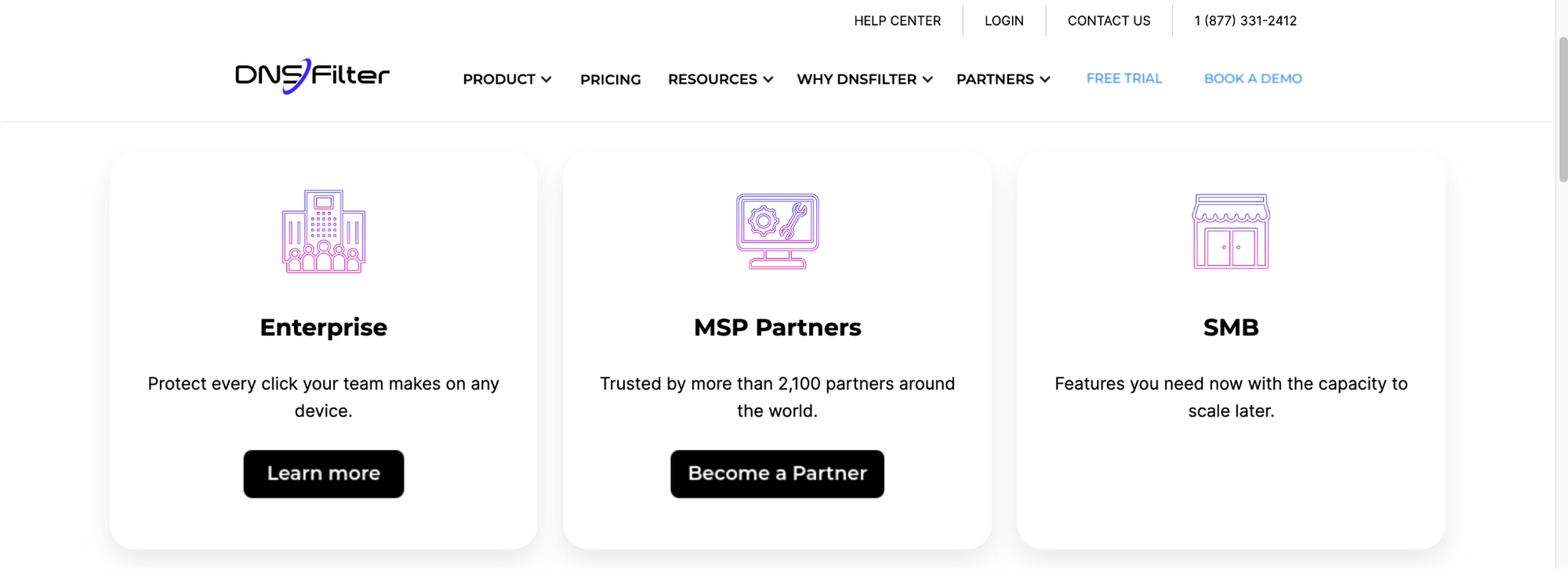
DNSFilter uses a per-license (per user/endpoint) pricing model with three main subscription tiers. It's important to note that each tier requires a monthly minimum spend, which may affect smaller organizations.
Here's what each plan costs:
Basic Plan:
- $1.15/license/month (billed monthly) or $1.00/license/month (annual billing)
- Minimum spend: $23/month
Pro Plan:
- $2.30/license/month (billed monthly) or $2.10/license/month (annual billing)
- Minimum spend: $57.60/month
Enterprise Plan:
- $3.00/license/month (billed monthly) or $2.70/license/month (annual billing)
- Minimum spend: $100/month
Specialized Pricing Models
Beyond standard business pricing, DNSFilter offers several specialized pricing options for Managed Service Providers (MSPs), educational institutions, and public Wi-Fi operators:
- MSP (Managed Service Provider): Pricing starts at $150/month minimum with tiered volume discounts, in addition to the cost of your plan above the minimum
- Educational Institutions: Pricing starts at $4/student and staff member per year with a 125-user minimum, resulting in a minimum annual spend of $500
- Public Wi-Fi: Pricing starts at $5/access point/month if you subscribe to an annual plan, with a minimum of $20/month
Additional Costs to Consider
Here's where things get a bit sticky. DNSFilter's base prices look straightforward, but some features cost extra.
Premium Support
DNSFilter offers an add-on called Premium Support, which includes:
- Prioritized Case Handling
- Enhanced SLA: targeted response times of 30 minutes for email, 15 minutes for 24x7 phone support
- Zoom Consultation Calls: 2x consultation calls with the support team
Although DNSFilter no longer publishes the cost of this add-on, it was previously on their website as 20% of your base plan cost.
SIEM Integration & Data Exporting
If you need to export your data or stream raw DNS query logs to a SIEM tool such as Splunk, Microsoft Sentinel, etc., it will cost an additional $0.25/user/month.
These additional costs can add up fast, especially when features that most teams consider standard (like exporting your own data) turn into line items on your bill. If your organization covers hundreds or thousands of users and endpoints, the $0.25/user/month fee can amount to hundreds of dollars per month.
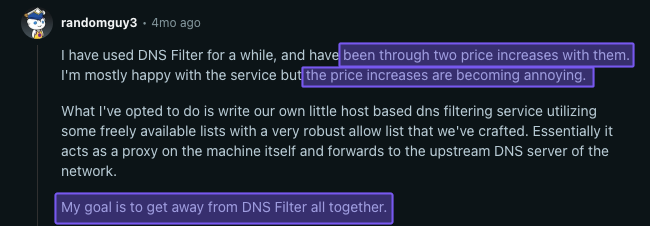
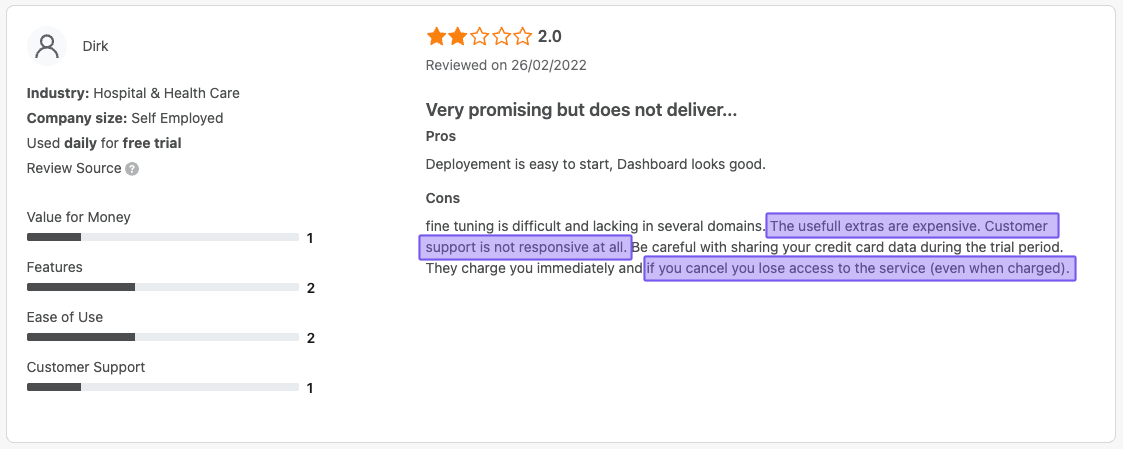
DNSFilter Features: What You Actually Get
Let's break down what you're paying for at each pricing tier. This will help you determine whether DNSFilter delivers value for its cost.
Basic Plan Features
For $1.15/license/month, the Basic plan gives you:
- Protection from malicious websites in real-time
- Content filtering with category blocking
- Basic reporting and analytics
- Query log retention: 3 days
- Report retention: 30 days
- Standard email support
Pro Plan Features
For $2.30/license/month, the Pro plan adds everything in Basic, plus:
- AppAware (application-level filtering)
- Per-user policies and per-user reporting
- Windows and macOS roaming clients
- Active Directory support and Zapier integration
- API access
- Admin action logs
- Query log exporting
- Query log retention: 6 days
- Report retention: 60 days
- Relay deployment
- Chat support
- Access to Premium Support (add-on)
Enterprise Plan Features
The Enterprise tier includes everything in Pro, plus:
- iOS, Android, and Chrome roaming clients
- Query log retention: 9 days
- Report retention: 90 days
In most cases, you’ll want to start with the Pro plan, since the Basic plan is, well, basic for most serious business needs.
One important limitation across all tiers: DNSFilter only supports DNS-over-TLS (DoT) for encrypted DNS queries, lacking support for more modern protocols like DNS-over-HTTPS (DoH), DNS-over-HTTPS/3 (DoH/3), and DNS-over-QUIC (DoQ).
Is DNSFilter Worth the Cost? 9 Things to Consider
Buying security tools is more than checking a price tag. Use these checkpoints to see if DNSFilter fits your needs.
1. Who Is DNSFilter For?
DNSFilter primarily targets small to medium-sized businesses, MSPs, and schools. It's built for teams that want quick setup and straightforward filtering without getting too fancy with customization or granular controls.
2. Is DNSFilter Easy to Set Up?
DNSFilter receives strong marks for deployment simplicity. The platform offers:
- Cloud-based deployment (no on-premise hardware)
- DNS relay application for easy routing
- Integration with common RMM tools
- Roaming client software to secure remote workers
3. Pricing Transparency
DNSFilter deserves credit for listing prices on its website, a feature many competitors in the DNS security space avoid. You can see exactly what each tier costs and calculate your expected spend without having to play phone tag with sales reps. That transparency is refreshing, even if it only tells part of the story.
Things get murkier with add-ons, though. Premium Support pricing was previously published on their website, but has since disappeared, meaning you’ll need to contact sales to get the actual cost.
There are still online sources reporting the previously advertised “20% off base plan cost,” but it’s unclear whether this is still true, or if it has changed.
On top of that, DNSFilter’s pricing minimums can be tougher for smaller teams: if you don’t hit the minimum seat or spend thresholds, your effective per-user cost will jump significantly.
4. Does DNSFilter Scale Well?
DNSFilter’s per-user/endpoint pricing model scales linearly as you grow. That's useful for planning as it means your costs rise in lockstep with your headcount.
Generally speaking, this predictability is appealing as you’re never paying for more seats/endpoints than you have – unless you fall below their minimum thresholds, of course – but it’s worth keeping this in mind if you’re specifically looking for a usage-based (consumption-based) pricing model.
5. Support Quality
As standard, DNSFilter offers:
- Email support
- Knowledge base documentation
- Community forums
- Chat support (Pro or Enterprise plan users only)
There’s also the Premium Support add-on you can purchase.
Overall, users generally praise the support quality, noting its helpfulness when they have issues. However, recent feedback from MSPs and customers suggests that DNSFilter’s support experience can be inconsistent, even for Premium Support users.

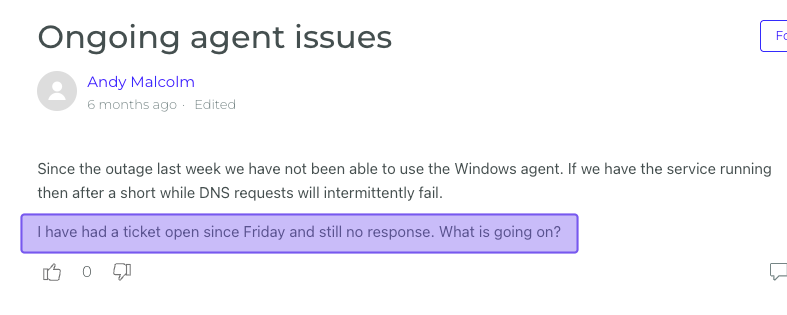

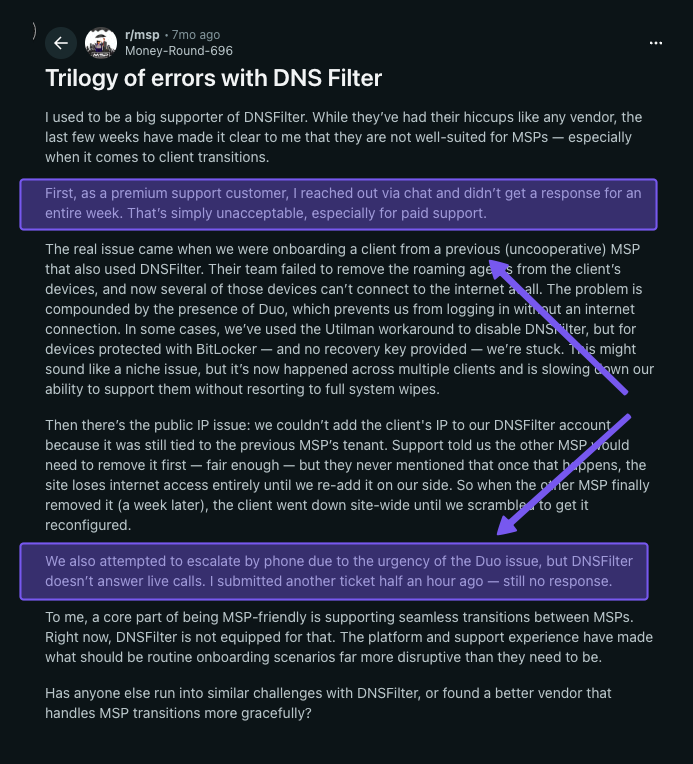

Multiple users on Reddit and DNSFilter's own community forum describe receiving "no response, with one Premium Support customer not receiving a response "for an entire week"
6. Performance

DNSFilter operates a global Anycast network designed for fast DNS resolution. Based on independent data from DNSPerf.com, query speed numbers aren’t as high as they once were, which suggests a drop-off in performance. However, it’s still at a reasonable speed of 20.51 ms globally.
7. Analytics and Reporting
When you’re evaluating DNSFilter, your reporting and data retention requirements are a big part of the total cost. In practice, you’re really answering two questions:
- How long do you actually need to keep reports and query logs?
DNSFilter’s tiers step up from 30 / 60 / 90 days of report retention and 3 / 6 / 9 days of query logs for Basic / Pro / Enterprise. If you need more history than that, you’ll be relying on data exports.
- Do you need to stream raw DNS logs to your SIEM tool?
If the answer is yes, you’ll need DNSFilter’s Data Export add-on, which adds $0.25/user/month on top of your base plan cost.
8. Roaming Agent Issues
DNSFilter’s roaming agent (endpoint client) is necessary to enforce DNS security policies off-network, but user reports and DNSFilter’s own documentation highlight recurring reliability issues.
There have been reports of roaming agents repeatedly flipping between online and offline, update problems that leave clients stuck on old versions or “blanking out” DNS, and failures where the agent takes down DNS resolution entirely until it’s stopped or uninstalled.
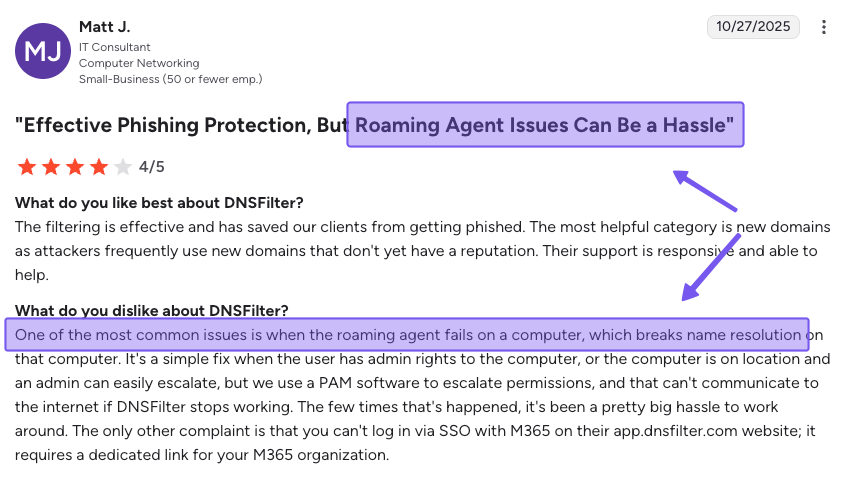
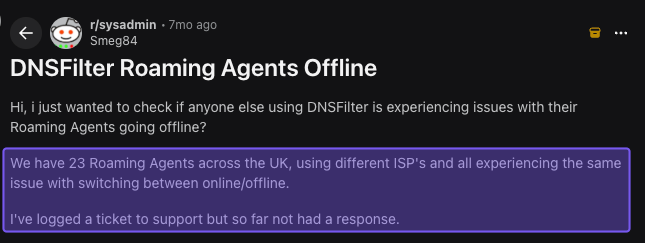
Captive portals are also a common casualty. Because the roaming client redirects DNS away from the local network, hotel, airport, public Wi-Fi, and even some corporate portals simply won’t load.
Your users become stuck on the login screen, with no way forward except to disable or remove the client entirely. For businesses with frequent travelers or remote staff, this can become a constant help desk headache.


Control D Offers More Value Than DNSFilter
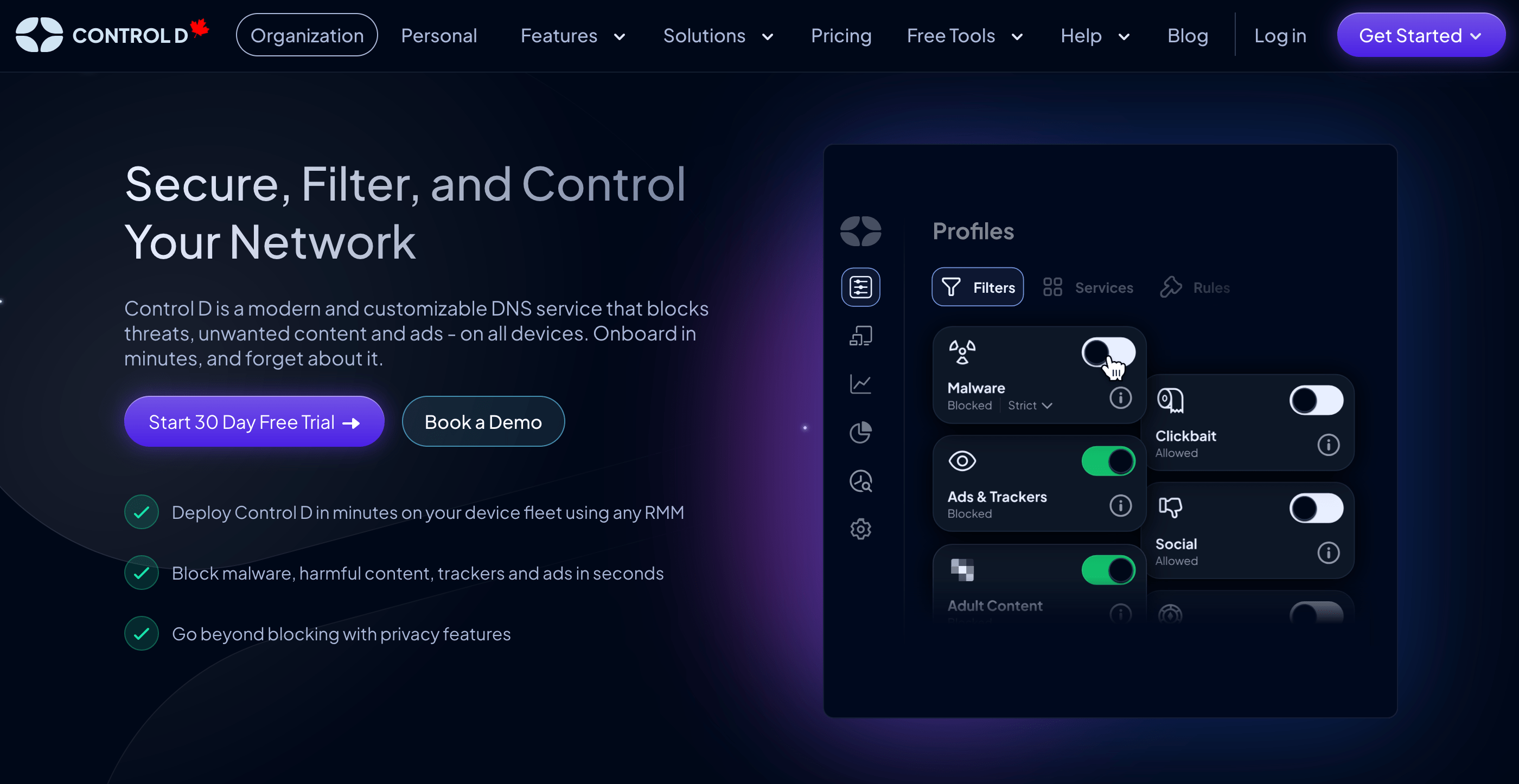
While DNSFilter offers solid DNS filtering with clear tiers, Control D takes a different approach: a single, flat feature set, simple pricing, and fewer surprises on the bill.
You get full encrypted DNS protocol support, more granular control over what gets blocked, and no charges for essentials like SIEM streaming and data exporting, all at a more affordable price point.
If you want enterprise-grade DNS security minus the enterprise bloat and headache, then Control D is an option worth considering.
Let’s explore why it’s rapidly becoming the go-to choice for industry experts.
Control D Pricing Breakdown
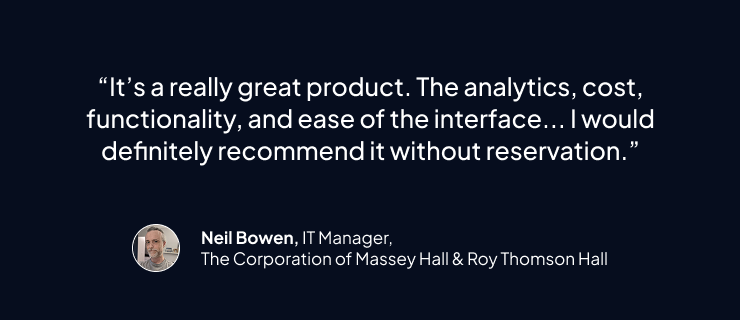
Control D uses straightforward, transparent pricing with no feature gating:
- School/Non-Profit: $0.50/endpoint/month
- MSP: $1/endpoint/month
- SMB: $2/endpoint/month
- Enterprise: Contact
There are no monthly minimums, no add-on charges, and no tiered access to features. Everything – including SIEM integration, data exporting, mobile clients, and Traffic Redirection – is included from day one.
Annual subscriptions get additional discounts, but even monthly pricing beats DNSFilter's effective costs – especially once you factor in minimums and add-ons. Here’s how they stack up.
| Product / Plan | Public Pricing? | List Price (USD) | Minimums / Notes |
|---|---|---|---|
| Control D (Enterprise) |
No | Contact | No minimums, no mandatory contracts; annual discounts available. |
| Control D (Startups & SMBs) |
Yes | $2/endpoint/month | No minimums, no mandatory contracts; annual discounts available. |
| Control D (MSPs) |
Yes | $1/endpoint/month | No minimums, no mandatory contracts; annual discounts available. |
| Control D (Schools / Non-Profits) |
Yes | $0.5/endpoint/month | Discounted rates; no long-term contracts required; annual discounts available. |
| DNSFilter (Basic) |
Yes | $1.15/license/month | $23/month minimum |
| DNSFilter (Pro) |
Yes | $2.30/license/month | $57.50/month minimum |
| DNSFilter (Enterprise) |
Yes | $3.00/license/month | $100/month minimum |
| DNSFilter (MSP) |
Yes | Starts at $150/month minimum | Base plan costs kick in above the minimum threshold |
| DNSFilter (Educational) |
Yes | $4/student and staff/year | $500/year minimum (125 users) |
| DNSFilter (Public Wi-Fi) |
Yes | Starts at $5/access point/month (annual plan) | $20/month minimum |
Control D's flat $0.5-$2/endpoint/month is certainly more cost-effective, but this price difference becomes more obvious when you look at real numbers.
Here's MSP pricing across different deployment sizes.
| Endpoints/Users | Control D MSP | DNSFilter Basic | DNSFilter Pro | DNSFilter Enterprise |
|---|---|---|---|---|
| 25 | $25 | $150 | $150 | $150 |
| 50 | $50 | $150 | $150 | $150 |
| 75 | $75 | $150 | $172.50 | $225 |
| 100 | $100 | $150 | $230 | $300 |
| 150 | $150 | $172.50 | $345 | $450 |
| 200 | $200 | $230 | $460 | $600 |
| 500 | $500 | $575 | $1,150 | $1,500 |
| 1,000 | $1,000 | $1,150 | $2,300 | $3,000 |
Control D is substantially more affordable – up to 6x cheaper at lower endpoint counts and 3x cheaper at scale. But how does this translate to the features offered? Let’s find out.
Control D Features: What You Actually Get
| General Features | Control D | DNSFilter Basic | DNSFilter Pro | DNSFilter Enterprise |
|---|---|---|---|---|
| Advanced ML-Based Malware Protection | ✅ | ✅ | ✅ | ✅ |
| Blockable Services | 1,000+ apps/services | ❌ | AppAware ~100 | AppAware ~100 |
| Geo-Custom Rules | ✅ | ❌ | ❌ | ❌ |
| Modern DNS Protocols | ✅ | DoT only | DoT only | DoT only |
| Traffic Redirection | ✅ | ❌ | ❌ | ❌ |
| Windows/MacOS | ✅ | ❌ | ✅ | ✅ |
| iOS/Android/Chrome | ✅ | ❌ | ❌ | ✅ |
| Query Log Retention | 1 month | 3 days | 6 days | 9 days |
| Analytics Retention | Up to 1 year | 30 days | 60 days | 90 days |
| Data Export / SIEM Log Streaming | ✅ | $0.25/user/month | $0.25/user/month | $0.25/user/month |
| Data Storage Regions | NA/EU/AU + custom | 1 | 1 | 1 |
| Privacy | Minimal data, no 3rd-party trackers | Collects/shares personal + device data with partners | Collects/shares personal + device data with partners | Collects/shares personal + device data with partners |
Since Control D doesn’t gate features behind tiers, here’s what every customer gets.
Best-in-Class Malware Protection
Independent testing shows Control D's malware filter achieves a 99.98% block rate, outperforming all other DNS providers, including Google, Cloudflare, Quad9, and more.
Instead of relying on static lists that are always playing catch-up, Control D uses AI and machine learning to spot threats the moment they appear. By the time a new malware domain hits a traditional blocklist, Control D has already blocked it.
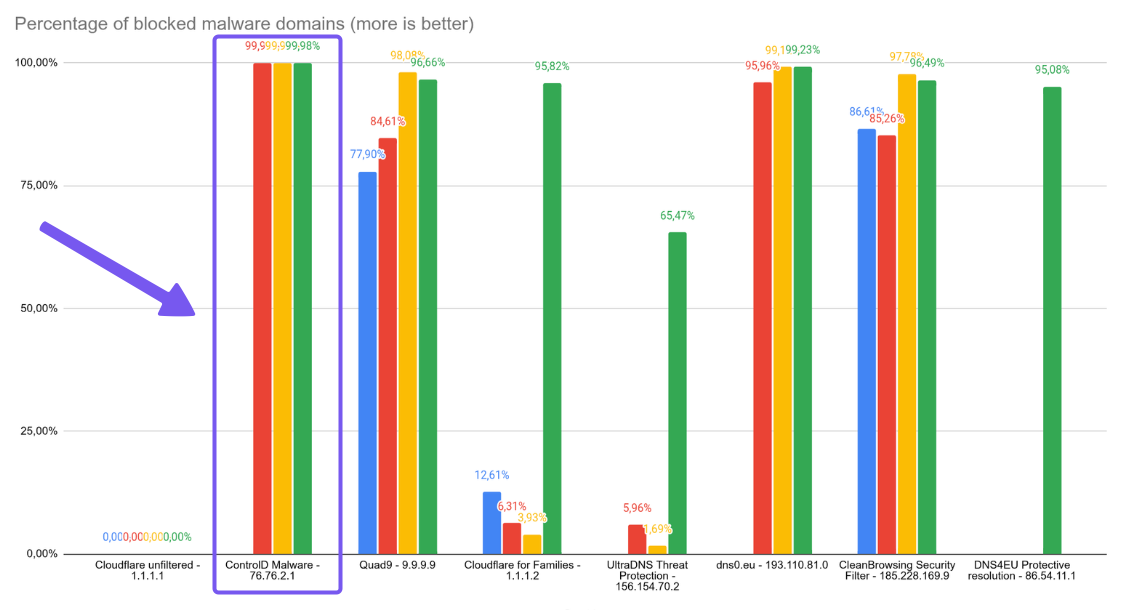
Advanced Content & Service Filtering
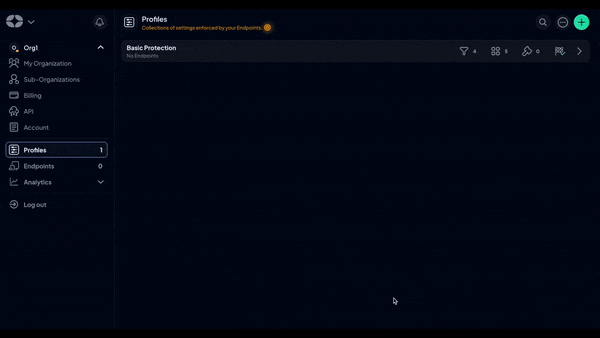
Control D offers category-based filtering in the form of Filters – of which there are 20 – but takes it a step further with the ability to block, bypass, and redirect Services (individual apps, platforms, and tools).
DNSFilter offers something similar with AppAware, but it only covers ~100 Services, whereas Control D has 1,000+ Services to choose from. This allows you to create granular, tailored filtering policies that are exactly suited to your needs.
There’s also Ad and Tracker blocking with different strength levels (Relaxed, Balanced, or Strict), so you can dial things up or down until you find the sweet spot without breaking search results or getting in the way of normal browsing.
Traffic Redirection
A feature DNSFilter doesn’t offer is Traffic Redirection, which allows you to redirect traffic through one of 100+ proxy locations in 60+ countries.
This means you can route traffic through specific regions for compliance and improve performance with local resolution, all without deploying a VPN.
Geo-Custom Rules
Control D offers a flexible geo-based rule system that goes well beyond what DNSFilter provides. Instead of only matching on domains, you can write rules that match on where a query comes from and where it’s going:
- Block, bypass, or redirect queries that resolve to IPs in specific countries
- Block, bypass, or redirect queries that resolve to IPs outside specific countries
- Block, bypass, or redirect queries made from IPs in specific countries
- Block, bypass, or redirect queries made from IPs outside specific countries
- Block, bypass, or redirect queries that resolve to IPs owned by specific networks (ASNs) or not owned by them
- Combine multiple geo rules to build more complex location- or ASN-based policies
This gives you complete control over your DNS traffic, allowing you to block access from high-risk countries, prevent traffic from reaching specific regions, and enforce where your data can and can't go.
Full details and examples can be found in Control D’s Geo Custom Rules documentation.
Analytics and Reporting
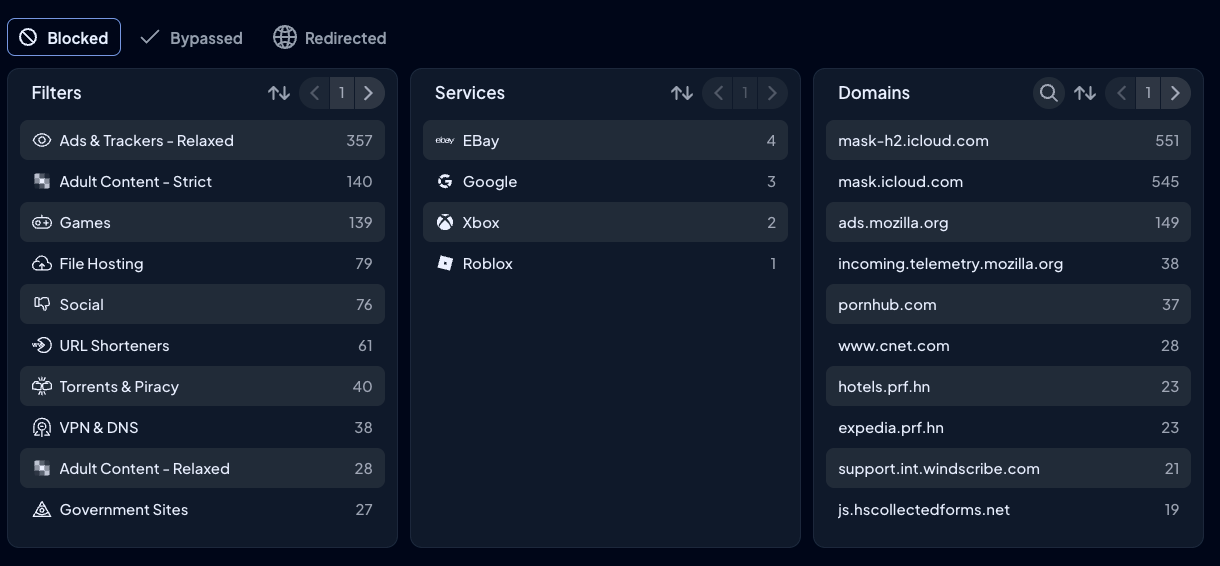
Where DNSFilter makes you think in terms of retention limits and paid exports, Control D’s Analytics is built around actually working with your data. You get:
- Up to 1 month of raw query logs and up to 1 year of aggregated analytics and reports
- Interactive analytics views where you can slice traffic by endpoint, Profile, Filter, Service, domain, country, ASN, action (block/bypass/redirect), and time range
- Scheduled email reports (daily, weekly, or monthly) for high-level overviews
- SIEM streaming at no extra charge
On-demand exports whenever you want
Modern Protocol & Cross-Platform Support
While DNSFilter only supports DoT, Control D supports all modern encrypted DNS protocols, including:
- DNS-over-HTTPS (DoH)
- DNS-over-TLS (DoT)
- DNS-over-HTTPS/3 (DoH3)
- DNS-over-QUIC (DoQ)
- Legacy DNS
- Full IPv4 and IPv6 (dual-stack) support
It also runs on every major operating system, browser, and router available, and integrates seamlessly with enterprise tools such as:
- Active Directory
- Single Sign-On providers (Okta, Entra ID)
- RMM platforms (NinjaOne, Datto, Kaseya, ConnectWise, Atera)
- SIEM tools (Splunk, IBM QRadar, and more)
Support Quality
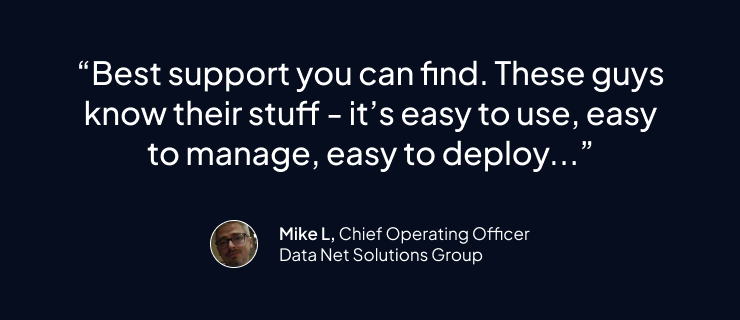
Control D gives you access to:
- Email support: 7 days a week, 9am-9pm Eastern
- Knowledge base documentation
- Community forums: Reddit & Discord channels
- AI Chatbot (Barry): Available 24/7 via the Control D dashboard to troubleshoot non-critical issues and provide immediate assistance
In practice, feedback on Control D’s support has been overwhelmingly positive. Users often highlight quick responses, clear guidance, and the fact that real engineers (and even the founders) jump in when issues get more complex.
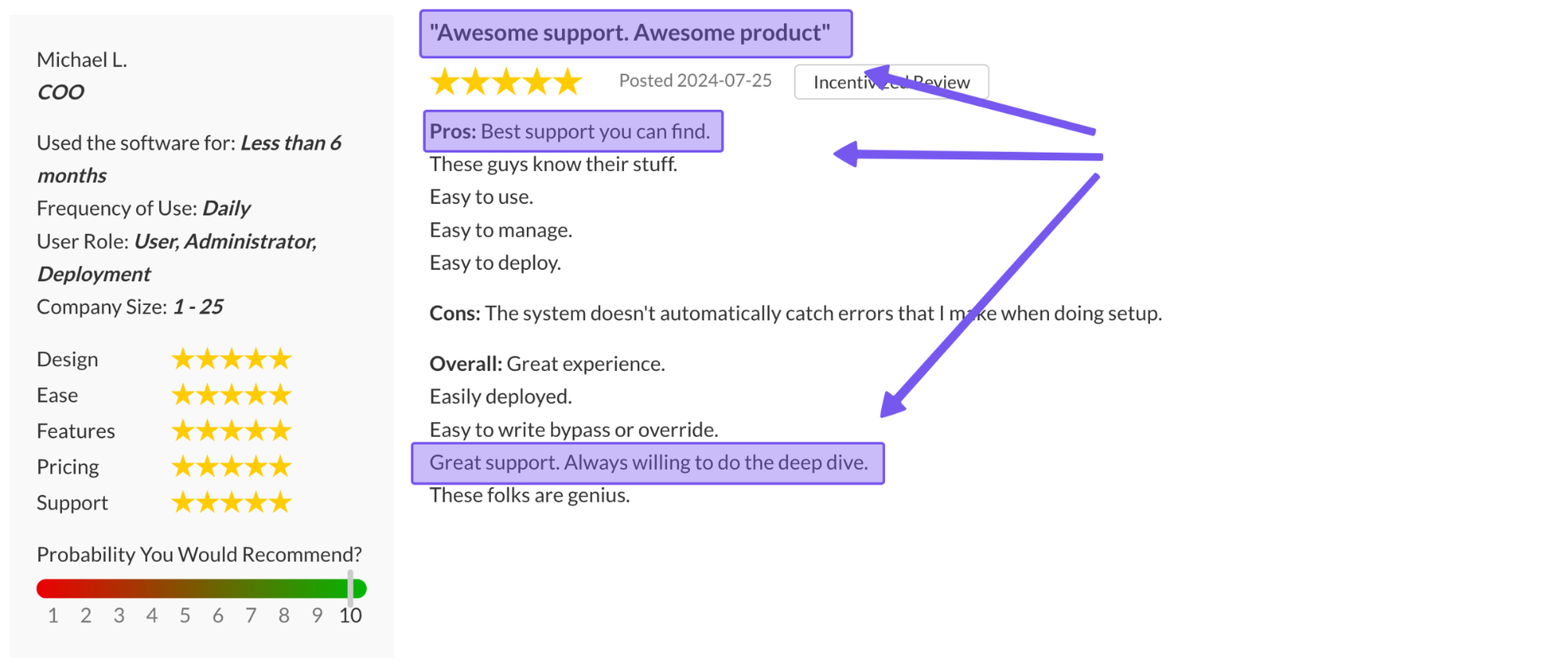



Performance Comparison
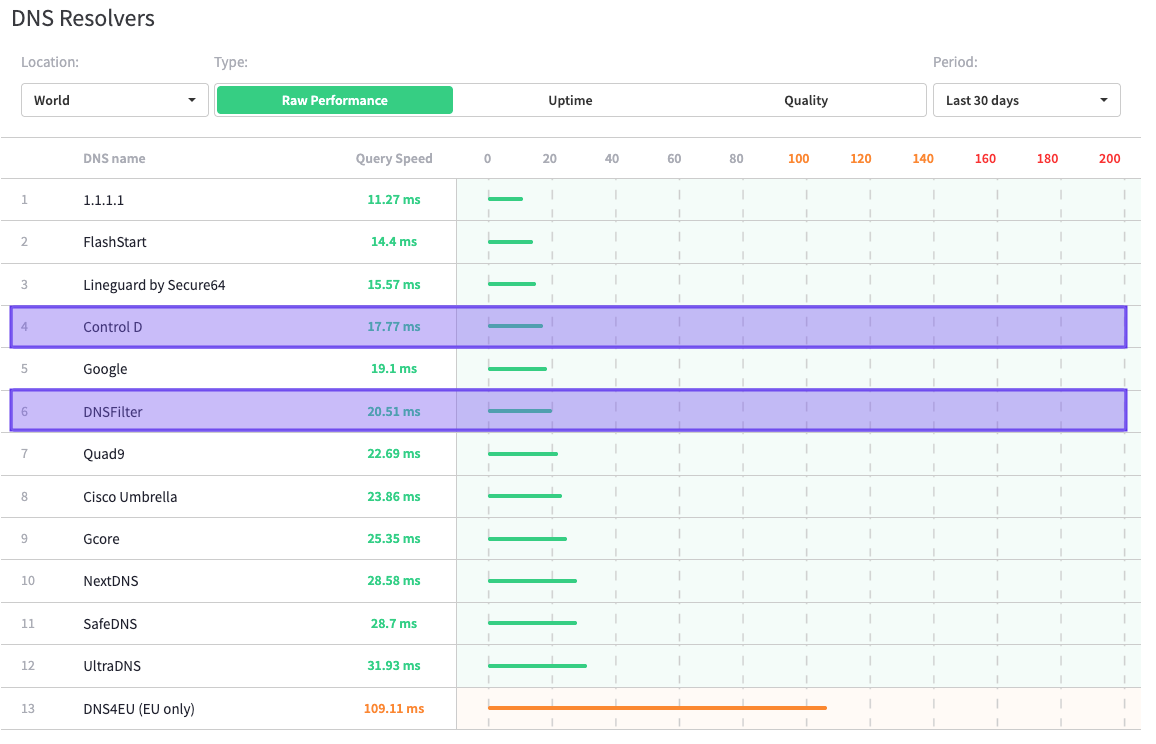
Based on independent data from DNSPerf, Control D leads in global query speeds with a score of 17.77 ms compared to DNSFilter’s 20.51 ms.
Final Thoughts
DNSFilter gives strong DNS-level security with clear plan tiers and public pricing. The Pro plan is the sweet spot for many teams because it adds roaming clients, Active Directory, and AppAware without jumping to Enterprise pricing.
If you need mobile agents (iOS/Android/Chrome) or longer retention, Enterprise covers that. Just remember the monthly minimums and the Data Export add-on if you need data exporting or SIEM streaming.
That begs the question: Is DNSFilter worth it? The answer is it can be, if the features match what you’ll actually use and you don’t mind paying extra for features competitors include by default.
If you want more bang for your buck, Control D is a strong alternative at $1-2 per endpoint/month with everything included:
- Full modern DNS protocol support
- 1,000+ blockable Services
- SIEM streaming at no additional cost
- Traffic Redirection
- Faster performance
- Stronger privacy
- Solid support experience.
